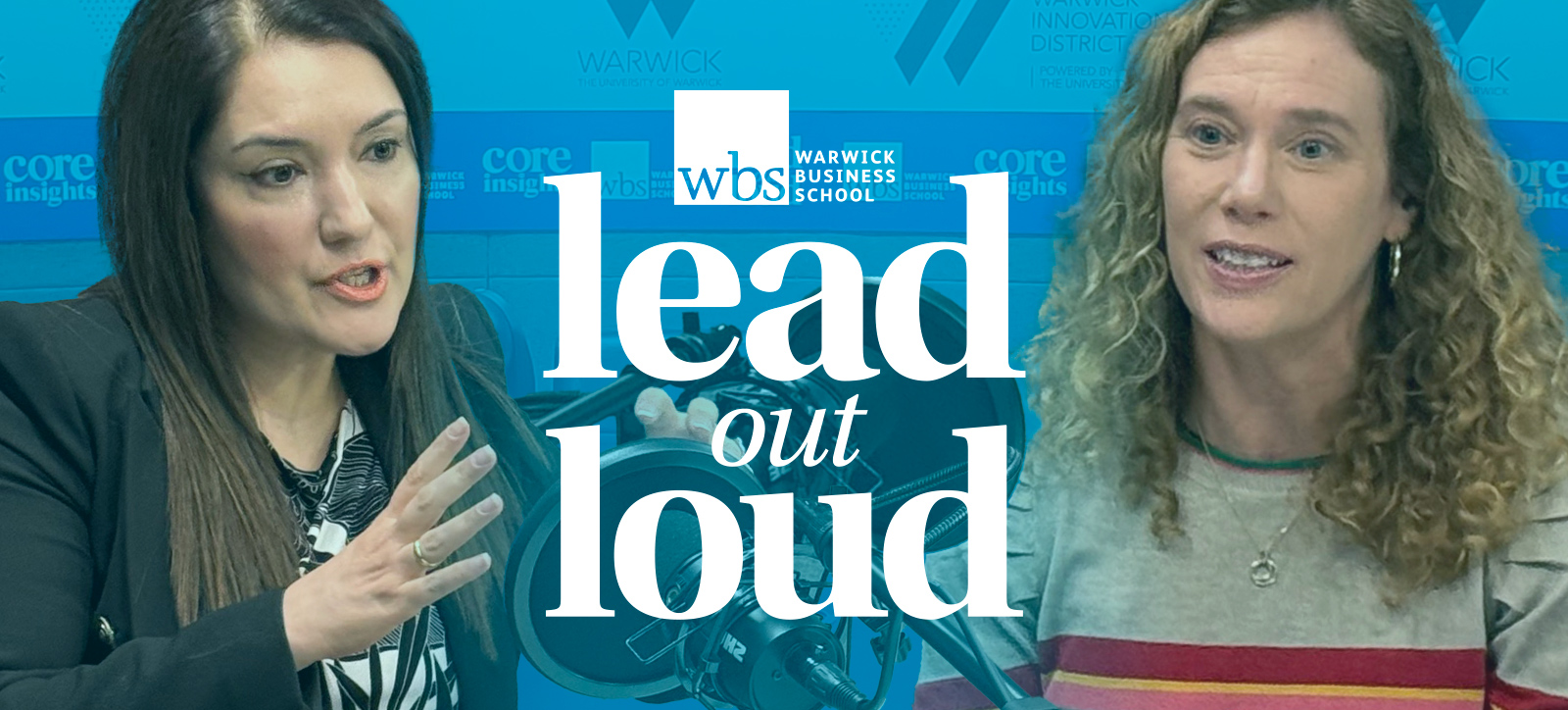
Thinking big: Elham Fardad, CEO and Founder of Migrant leaders and Dawn Eubanks, Associate Professor, discuss inclusive leadership
Inclusive leadership fosters innovation, strengthens teams, and ensures that every voice is heard and valued, argues WBS academic Dawn Eubanks.
On Warwick Business School's Lead Out Loud podcast Dr Eubanks, Associate Professor of Behavioural Science and Entrepreneurship & Innovation, and Elham Fardad, Founder and CEO of Migrant Leaders, explore why the future of leadership is built on inclusion, adaptability, and trust.
Creating opportunity through inclusion
True leadership is about opening doors for others says Elham, who champions leadership development for young migrants and highlights the power of inclusive workplaces in driving success.
“Diversity and inclusion are not just about fairness; they are about achieving excellence,” says Elham, who became the School's youngest student on the Executive MBA when studying it at 25. “When we harness the potential of people from all backgrounds, we unlock innovation and resilience.
“By recognising and nurturing diverse talent, leaders can create stronger, more dynamic teams.”
In the second episode of Lead Out Loud Dr Eubanks expands on this, stressing the importance of recognising the strengths individuals bring. She says: “It’s differences rather than being ‘disadvantaged’ - you’re not bringing less to the table, that’s not the case at all. If you are a leader that’s inclusive, then you’re going to recognise diversity. You’re going to recognise the diversity of the people working with you, and in doing that, you’re going to find out what their needs are.”
Decision-making with confidence
Leaders face complex challenges, and how they make decisions has a lasting impact. Dr Eubanks, who teaches leadership and decision-making as Course Director of the Full-time MBA, emphasises the need for confidence in uncertainty.
“Good leaders are not those who never doubt themselves,” she explains. “They are those who can navigate ambiguity and make decisions that align with their values and vision.
“Another important thing is to create psychological safety in the workplace so people feel like they can have their voices heard.”
Elham acknowledges the challenges in fostering inclusive leadership, especially in the face of the current backlash largely emanating from US President Donald Trump.
“I think we have to be patient. This is a long game. There was always going to be some form of a backlash - the only question was when and how much,” she says. “I know in my mind and I know in my gut that diversity and inclusion add to the bottom line. If business is about optimal decisions, utilisation of resources, and bottom-line profitability, then it’s in everyone’s interest.”
The power of adaptability
In an ever-changing world, leadership requires agility. Both Elham and Dr Eubanks stress that adaptability is essential for long-term success.
Elham adds: “The best leaders are those who embrace change rather than resist it. They seek to understand new perspectives and adjust their approach to stay ahead.”
Similarly, Dr Eubanks points out that rigid leadership styles can stifle growth.
“Encouraging a mindset of continuous learning allows organisations to evolve and innovate,” she says.
Elham also emphasises that leadership must go beyond rigid job structures.
“Eight years ago, I was asking myself, what am I doing for the next generation? I developed the young leader model, which includes ambition, productivity, leading yourself, and leading others,” she says.
“If you’re a good leader, you can design jobs based on people’s best capabilities. It doesn’t take that much time, and if you’re not a good leader - then why are you paid a leadership salary?”
The Bottom Line: What inclusive leaders do differently
- Embrace inclusion: A diverse workforce fuels creativity and problem-solving.
- Make confident decisions: Effective leaders trust their judgement while staying open to input.
- Stay adaptable: Flexibility and continuous learning are key to long-term success.
- Foster trust: Supportive leadership creates engaged and motivated teams.
- Lead with purpose: A clear vision inspires people to contribute their best work.
Inclusive leadership isn’t just the right thing to do - it’s the smart thing to do. By putting people first, leaders create workplaces where innovation thrives, teams flourish, and success follows.
Further reading:
Five lessons to create more inclusive organisations
Can communal leadership benefit men more than women?
Six ways to increase inclusivity as a leader
Change Maker: Elham Fardad is helping migrants boost the UK economy
Discover more about Leadership by subscribing to the Core Insights Newsletter.




 X
X Facebook
Facebook LinkedIn
LinkedIn YouTube
YouTube Instagram
Instagram Tiktok
Tiktok